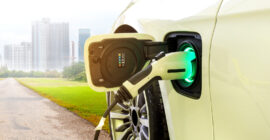Pandemi Covid-19 has a big impact on the world, including the entire health care system. It is known that frontline workers are emphasized and carry heavy mental loads along with physical fatigue. Researchers from Ohio work together to try and find ways to reduce this stress level, especially among those who work in the Covid-19 and Clinic ward. It turns out that there may be a relatively cheap and easy way to help, and involve the use of virtual reality headsets.
The team consists of researchers from Ohio University and Immersive Design Lab Research (Grid), Heritage College of Osteopathic Medicine, and Ohihealth Hospital. This is the first time Lab Grid uses virtual reality (VR) content for the purpose of reducing stress, having previously focused on utilizing VR for educational purposes. The team published their findings on PLOS One Journal.
Many studies have emerged since the beginning of Pandemi, prove that frontline workers are very affected. Anxiety, depression, mental trauma, fatigue, and fatigue are all things experienced by most health care workers in the last two years. According to researchers from Ohio University, there is a way to offer these medical professionals a brief leeway from their daily stress: spending three minutes in beautiful and calm nature simulations.
VR experience simulates fertile green forests
To achieve the desired effect, the grid lab works closely with the Ohio Museum complex to capture the recording needed for a three -minute simulation. The team filmed in the nature reserve found in Southeast Ohio which is part of the museum complex. The area is fertile, full of life, and most importantly, calm. Film making is done in such a way as to enable the entirely deep VR experience, including walking and looking in different directions.
The resulting video buried viewers in the beauty of nature. This is not intended to be a pleasant experience. Viewers can explore nature, listen to birds chirping, wind, and just breathe – no sound actors or anything that can interfere with relaxation. This is a short experience, but according to this research, it has been proven effective.
After the virtual reality experience is ready to be tested, it is distributed among 102 volunteers. Samples include people who work in three different Covid hospital units, and people from many different professions are involved, ranging from direct maintenance providers to administrative staff. The stress level is assessed by the frontline workers in question and recorded before and after watching a quiet video.
The researchers recorded a significant decrease in stress levels
The results of this study are quite easy. Of the 102 people who participated in this study, 84 of them worked in direct patient care, only 35 had previous experience with virtual reality. However, even those who are not accustomed to technology reporting a decrease in stress levels after experiencing a calm VR Grid laboratory.
Volunteers were asked to assess their stress levels on a scale of 1 to 10 before and after watching. Before the video three minutes, the average stress level was rated around 5.5. The decrease after only three minutes is quite large, reducing the average stress level of 3.3. Health workers with the highest stress level, assessed above 6.8, reported a greater decline to an average of 3.9. These reports are consistent in all sex, age, and experience with VR or absence.
The researchers concluded that using VR to bring a short relaxing moment to frontline workers can be proven to be feasible. This is a relatively cheap way to fight anxiety that can be achieved at work. However, it is not clear at this time how long the effect has survived. The team admitted that more studies were needed to determine whether seeing the nature of the VR would help in reducing long -term stress levels.



